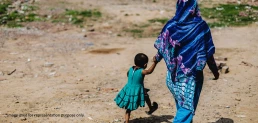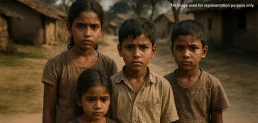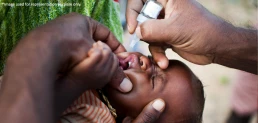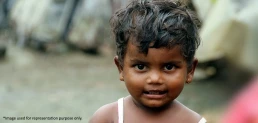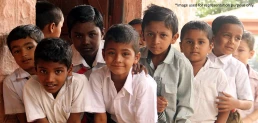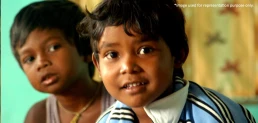Poverty is even greater than the deprivation of money since it is a deprivation of opportunity, well-being, and hope. The impact that living in poverty has on the mental health of poor, developing children is immense, lifelong, but is rarely acknowledged. Protecting the development, feelings, and potential of children who live in poverty is one of the ways to address their mental health and poverty. This contact is essential to the mobilization of support.
Understanding the Link Between Poverty and Mental Health
Children living in poverty struggle to deal with stress, not just material deprivation, but also emotional, psychological, and social stress. The connection between poverty, health, and mental health is determined by:
- Continuous anxiety over the most fundamental needs: food, shelter, safety.
- Poor access to health care, including mental health services.
- Continuous stigma, marginalization, and insecurity in everyday life.
- Increased exposure to childhood trauma and exposure to adverse childhood experiences.
Research proves that poverty is a great contributor to the development of depression, anxiety, behavioral, and developmental delays in childhood and adolescence.
Poverty’s Impact on Children’s Mental Health
Children experience stress, anxiety, and emotional insecurity due to poverty. Scarcity of resources and instability of the environment influence psychological health, resulting in depression, low self-esteem, and learning difficulties, which interfere with normal emotional and cognitive development.
Increased Stress and Anxiety in Low-Income Households
- Families are prone to unstable income, overpopulation, and food insecurity.
- There is an everyday survival imperative that generates tension in the home.
- This stress is passed on to children and causes anxiety, sleep problems, and fear.
- This long-term stress disrupts emotional control and the feeling of safety.
Depression and Low Self-Esteem Among Affected Children
- Continuous suffering would lead to hopelessness and sadness.
- Many children can internalize the stigma that comes with poverty and feel worthless or invisible.
- Depressive symptoms and low self-esteem decrease interest in school and social activities.
- These psychological health issues sabotage life opportunities in the initial stages.
Behavioral and Learning Difficulties
- Poverty tends to interfere with cognitive and school preparedness.
- Children can exhibit withdrawal, attention problems, or hyperactivity.
- Anxiety and depression may also be disruptive in the classroom or lead to disengagement.
- These problems are barriers to learning and may be what perpetuates academic underperformance.
Broader Health Effects of Poverty on Children
Poverty exposes children to malnutrition, lack of healthcare, and an increased risk of diseases. These health outcomes of poverty lead to poor growth, compromised immunity, and poor cognitive development, which impact the overall health and well-being of these individuals, as well as limiting their academic and social performance.
Malnutrition and Its Connection to Cognitive Growth
- The brain development and cognition of the undernourished children are measurably deficient.
- Research documents correlations between malnutrition and retarded motor functions, language, and cognitive development.
- Malnutrition increases disease susceptibility, which further affects mental health.
- Such a process of physical lack and cognitive retardation brings out the intersection of poverty and health problems
Poor Access to Healthcare and Its Psychological Consequences
- Families in poverty often lack health insurance or face high out-of-pocket costs.
- This results in untreated illnesses, delayed development, and caregiver stress.
- Absence of preventive or mental health services deepens trauma and neglect.
- Inadequate access reinforces both physical and psychological hardship.
Social and Environmental Factors Worsening Mental Health
Poor housing, violence in the community, poor education, and poor support mechanisms aggravate poverty and mental illnesses. These settings increase stress, trauma, and behavior issues, and children are less likely to develop resilience and emotional stability.
Exposure to Violence and Unsafe Living Conditions
- Slums, overcrowded housing, and dangerous neighborhoods create chronic fear.
- Exposure to domestic violence, substance misuse, and crime traumatizes children.
- Unsafe environments impair a child’s ability to relax, study, or feel secure.
- Constant vigilance harms emotional development and resilience.
Lack of Access to Quality Education and Support Systems
- Poor neighborhood schools have few or no counselors, dangerous classrooms, and no or minimal mental health awareness.
- There is a lack of educational support, which aggravates emotional distress.
- Children can be isolated, unsupported, or lag academically.
- Lack of education feeds emotional trauma and constrains opportunity in the future.
Strategies to Support Mental Health in Poverty-Stricken Communities
To enhance the mental health of children, supportive caregivers, community counseling, and interventions led by the government are needed. Nutrition, education, and safe space programs reduce stress and build resilience, and provide children with equal opportunities to grow, learn, and live healthier and more fulfilling lives.
Role of Parents and Caregivers in Emotional Support
- Consistent routines, reassurance, and open communication foster emotional safety
- Simple practices: Playing, storytelling, praising effort over outcome, listening attentively.
- Emotional connection and validation can buffer the impact of stress and boost resilience.
- Parenting support programs strengthen caregiver capacity even under hardship.
Importance of Community Programs and Counseling
- School-based counseling, peer support groups, and psychosocial outreach can reach many children.
- Trained frontline workers in Anganwadi or schools can spot early signs of distress
- Community safe spaces like youth clubs promote peer connection and expressive play.
- Investments in these infrastructure channels expand access to care.
How CRY America Can Help Address Poverty and Children’s Mental Health
CRY America leverages donor resources to strengthen services and systems, especially in marginalized communities across India.
1. Community mental health hubs
- Sets up child-friendly spaces within schools or Anganwadi centers.
- Trains frontline workers in basic mental health screening and referral.
2. Psychosocial support and referrals
- Arranges professional counseling for children showing signs of trauma or depression.
- Coordinates with government-run health clinics to bridge access gaps.
3. Nutrition and early stimulation integration
- Supports ICDS and nutrition programs that reduce malnutrition-linked cognitive delay.
- Reinforces mental well-being through improved nutrition and early learning.
4. Caregiver training and peer groups
- Conducts workshops on stress management, responsive caregiving, and emotional care.
- Facilitates parent groups to exchange strategies and support each other.
5. Safe education and play environments
- Advocates for safe, enriching school spaces with emotional support structures
- Helps implement breakfast or midday meal schemes that reduce hunger-related stress.
6. Policy advocacy and monitoring
- Collects data on child mental health in poverty zones to influence policy
- Works with authorities to ensure mental health is part of child welfare policy.
FAQs on How Poverty Affects Children’s Mental Health
What role does access to education play in a child’s mental health?
Access to education provides structure, stability, and social interaction, reducing stress and building resilience. It supports emotional well-being and self-confidence while offering opportunities for cognitive growth and personal development.
What are the most common mental health issues in children living in poverty?
Children living in poverty commonly experience anxiety, depression, stress, low self-esteem, and behavioral difficulties due to insecurity, limited resources, and exposure to adverse environments affecting emotional and cognitive development.
Can poverty lead to long-term psychological problems?
Chronic poverty can cause prolonged stress, trauma, and low self-esteem. Without intervention, these experiences may result in persistent anxiety, depression, and developmental challenges that extend into adulthood.
What is the relationship between poverty, violence, and mental health in children?
Poverty often increases exposure to violence, unsafe housing, and community crime. This combination heightens trauma and emotional stress, negatively affecting mental health, behavior, and overall cognitive and social development.
Recommended for you











